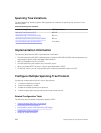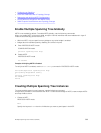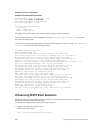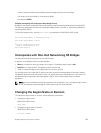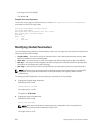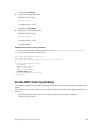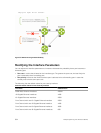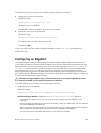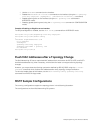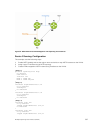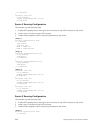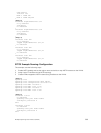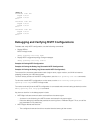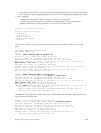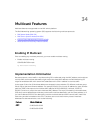
* Use the shutdown command on the interface.
* Disable the shutdown-on-violation command on the interface (using the no spanning-
tree mstp edge-port [bpduguard | [shutdown-on-violation]])
command).
* Disable spanning tree on the interface (using the no spanning-tree command in
INTERFACE mode).
* Disabling global spanning tree (using the no spanning-tree command in CONFIGURATION
mode).
Example of Enabling an EdgePort on an Interface
To verify that EdgePort is enabled, use the show config command from INTERFACE mode.
Dell(conf-if-gi-3/41)#spanning-tree mstp edge-port
Dell(conf-if-gi-3/41)#show config
!
interface GigabitEthernet 3/41
no ip address
switchport
spanning-tree mstp edge-port
spanning-tree MSTI 1 priority 144
no shutdown
Dell(conf-if-gi-3/41)#
Flush MAC Addresses after a Topology Change
The Dell Networking OS has an optimized MAC address flush mechanism for RSTP, MSTP, and PVST+
that flushes addresses only when necessary, which allows for faster convergence during topology
changes.
However, you may activate the flushing mechanism defined by 802.1Q-2003 using the tc-flush-
standard
command, which flushes MAC addresses after every topology change notification.
To view the enable status of this feature, use the show running-config spanning-tree mstp
command from EXEC Privilege mode.
MSTP Sample Configurations
The running-configurations support the topology shown in the following illustration.
The configurations are from Dell Networking OS systems.
596
Multiple Spanning Tree Protocol (MSTP)



